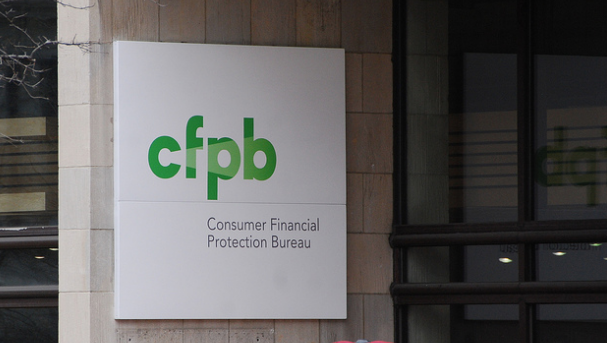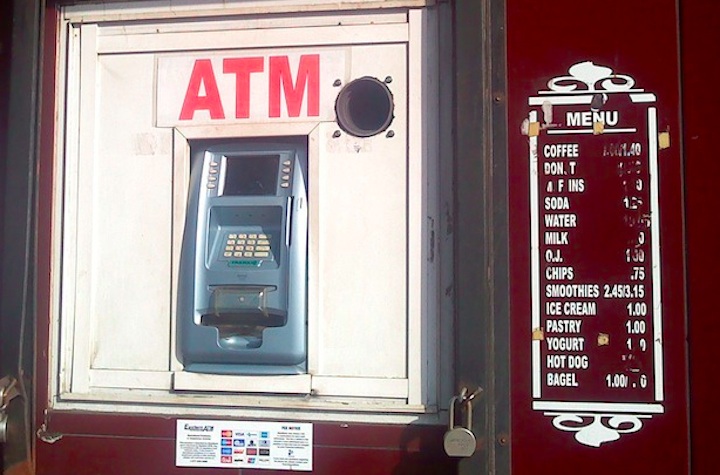Under federal law, depository institutions are prohibited from charging overdraft fees on ATM and one-time debit card transactions unless consumers affirmatively opted in. But a new report suggests that those who do opt-in might not know the cost of such a decision, with opted-in frequent overdrafters spending about $450 more in fees each year than non-opted-in frequent overdrafters. [More]
disclosures

How To Make Sure You Don’t Accidentally Buy United’s Crappy “Basic Economy” Tickets
When searching for the best fare on a flight, it’s not uncommon for customers to peruse a third-party travel site like Expedia or Priceline and jump at the lowest number they see associated with a flight. But some United Airlines passengers say this tried-and-true method has resulted in the unexpected purchase of a no-frills Basic Economy ticket. [More]

Tesla Probed By SEC Over Fatal Autopilot Crash
Nearly two weeks after Tesla announced the first fatal crash in one of the company’s electric vehicles while operating in semi-autonomous Autopilot mode, federal regulators are reportedly investigating whether the carmaker was forthright with offering information about the crash to investors. [More]

CFPB Proposes Delay Of New Mortgage Rules By Two Months
Prospective homebuyers anticipating a more streamlined disclosure process while buying their dream home may have to wait a little longer, as the Consumer Financial Protection Bureau is proposing a delay to new rules. [More]

Banks Continue To Improve Consumer Safeguards, But Progress Isn’t Coming Fast Enough
Opening a checking account with a bank is a rite of passage of sorts for many consumers, but the plethora of small-print disclosures, fees and other services are enough to confuse even the most seasoned account holder. While banks attempted to simplify their practices over the years, a new Pew Charitable Trusts report shows that some banks – and regulators – have a long way to go before they’re truly doing everything they can to protect consumers. [More]
![Pew researchers analyzed 10 key elements of remote deposit services. [click to enlarge]](../../consumermediallc.files.wordpress.com/2014/11/key-points.png?w=300&h=225&crop=1)
Report: Many Banks And Prepaid Companies Lack Clear Disclosures For Smartphone Deposit Services
Some days, driving to the bank or searching for the right ATM, seems like too much effort to deposit a single check. Over the past few years time-crunched consumers have found some relief in the form of banks offering the ability to remotely deposit checks with a smartphone. While the technology may be convenient, a new report found certain drawback to the program, including poorly disclosed terms and conditions. [More]

Banks Improve Disclosures, Falling Behind On Overdraft Fees, Binding Arbitration Clauses
Checking accounts come in all shapes and sizes to fit every consumer’s needs – fine, not every consumer. While options can be good when you’re shopping around for a new bank, they also lead to a plethora of fees and risks for consumers. While some practices have improved, a new Pew Charitable Trusts report shows banks have a long way to go and it’s time the Consumer Financial Protection Bureau took action. [More]

BofA: Let Us Email You Disclosures Or Get The Hell Out
In a shift that can be rationalized as environmentally friendly, Bank of America is telling customers that they must agree to receive disclosures, notifications, statements and bills via e-mail if they want to continue using online banking. [More]

Yankees And Mets Among Baseball's Biggest Online Ticket Fee Gougers
A new study released by Rep. Weiner shows that Yankees and Mets fans are bleeding more than just their team colors, they’re also getting gouged with some of the highest online ticketing fees in baseball. [More]

Groupon Shows How To Properly Explain TOS Changes
Groupon is a daily deal sort of website, but the reason it’s on Consumerist today is because of how well it communicated some recent changes to its Terms of Service agreement. Consumerist reader Pureboy sent in a copy of the email he recently received where the website explained the changes in plain English, with examples. [More]

Why Aren't Cellphones Under Warranty For The Duration Of Your Contract?
Adam got a bad iPhone that stopped providing some key functions–he can’t make calls on it, for example–18 months into ownership. He didn’t buy Applecare when he purchased it, which would have covered him during the second year of his contract. But that shouldn’t matter, he argues: “[Why isn’t it] incumbent upon a device maker to guarantee a product’s proper function for–at the very least–the length of the contract required at purchase?” [More]

AT&T Mobility And RadioShack Hit With Class Action Lawsuit Over $5,000 Overage Bill
A woman in Oklahoma bought a 3G netbook from RadioShack for $100, subsidized by a two-year data plan from AT&T Mobility. That plan comes with a 5GB monthly data cap, which she exceeded, and as a result her first monthly bill was over $5,000. Now the two companies are facing a class action lawsuit that alleges they are not clearly disclosing to purchasers that overage fees could be “astronomical.”


